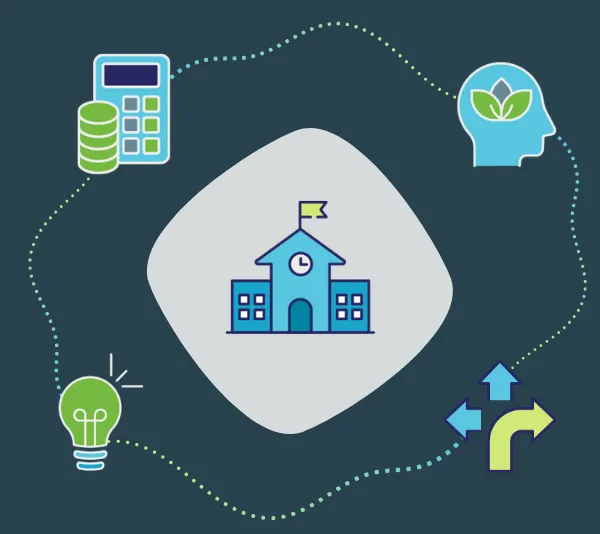Preparing the Next Generation for Financial Success
Financial literacy is a crucial life skill, and equipping the next generation for financial success requires a multifaceted approach. At Fortune’s Future of Finance 2024, moderator Diane Brady spoke with Tom Davidson, Founder of Everfi from Blackbaud, David Nason, Chief Operating Officer at TIAA and President of TIAA Wealth Management, and Vanessa Okwuraiwe, Principal at Edward Jones about how the public and private sectors can work together to help prepare the next generation for lasting financial success.
Opportunities for Financial Education
While there is a lot of discussion in the news about financial education and wellness, there is a significant amount of bad financial advice circulating through various social media channels. This creates a need and an opportunity to build the infrastructure that allows automation and effective financial management to reach young people. “What really needs to happen for financial education is that it needs to be short, relatable, and understandable to make it easier for them,” David Nason emphasized.
Schools are the first place to make this kind of learning happen. For the past 16 years, Everfi has partnered with schools across the nation, leveraging their existing infrastructure and support of students to enable financial education in the classroom. TIAA, driven by its mission to help people prepare for retirement, extends this initiative by incentivizing employers to teach their employees essential financial skills. Edward Jones, with its century-long presence and extensive reach, has partnered with Everfi since 2020 to bring financial education to K-12 schools, aiming to reach at least 1 million learners by the end of 2025. They are currently impacting over 900,000 students and counting.
Research from TIAA reveals that 40% of the population is unprepared for retirement, with this figure rising to over 50% for minority populations. “People have a preparedness issue in this country. Save as much as you can. People think that financial advice is just for the wealthy – it’s not. It needs to be democratized,” Nason highlighted. He also stressed the crucial role of employers in providing necessary resources to employees.
While some financial institutions strive to educate adults through employer financial education programs, they also possess the unique capacity to scale financial education in schools, reaching younger audiences. Private sector support of critical education programs allows for a multi-faceted approach to reach as many people as possible with financial wellness initiatives.
Preparing the Next Generation
Gen Z and Millennials represent a unique demographic, characterized by increased skepticism and a heightened awareness of risk due to experiences like the COVID-19 pandemic. Edward Jones, in partnership with Next360 and MarketCast, discovered that many young individuals still face significant challenges: only 1 in 10 have paid off student debt, about half lack health insurance, and less than a third are without life insurance.
Parents and guardians play an underrated yet pivotal role in financial education. Edward Jones found that over 70% of individuals aged 18-34 prefer seeking financial advice from their parents rather than social media. Vanessa Okwuraiwe noted, “We can’t underestimate the importance of parents and guardians in terms of immersion. Children learn their first languages at home. Financial education should be treated as a language. When people are immersed at the home front, they develop better financial habits.”
Looking towards the future of financial wellness, personalized education is becoming increasingly feasible with advancements in technology, allowing for tailored instruction and progress tracking. Currently, 26 states require students to complete a personal finance course to graduate. However, greater alignment between businesses and government policy is needed to drive comprehensive financial education. “The public sector is implementing a multi-step approach and starting early,” said Tom Davidson. “On the private side, every financial institution should help set up bank accounts to create the long-term infrastructure from kindergarten on.”
How Everfi Can Help
By integrating efforts across public and private sectors, schools, and families, we can ensure that the next generation is well-equipped for financial success. Learn how your organization can help sponsor financial education and bring it to K-12 schools at no cost: https://everfi.com/sponsorship/


